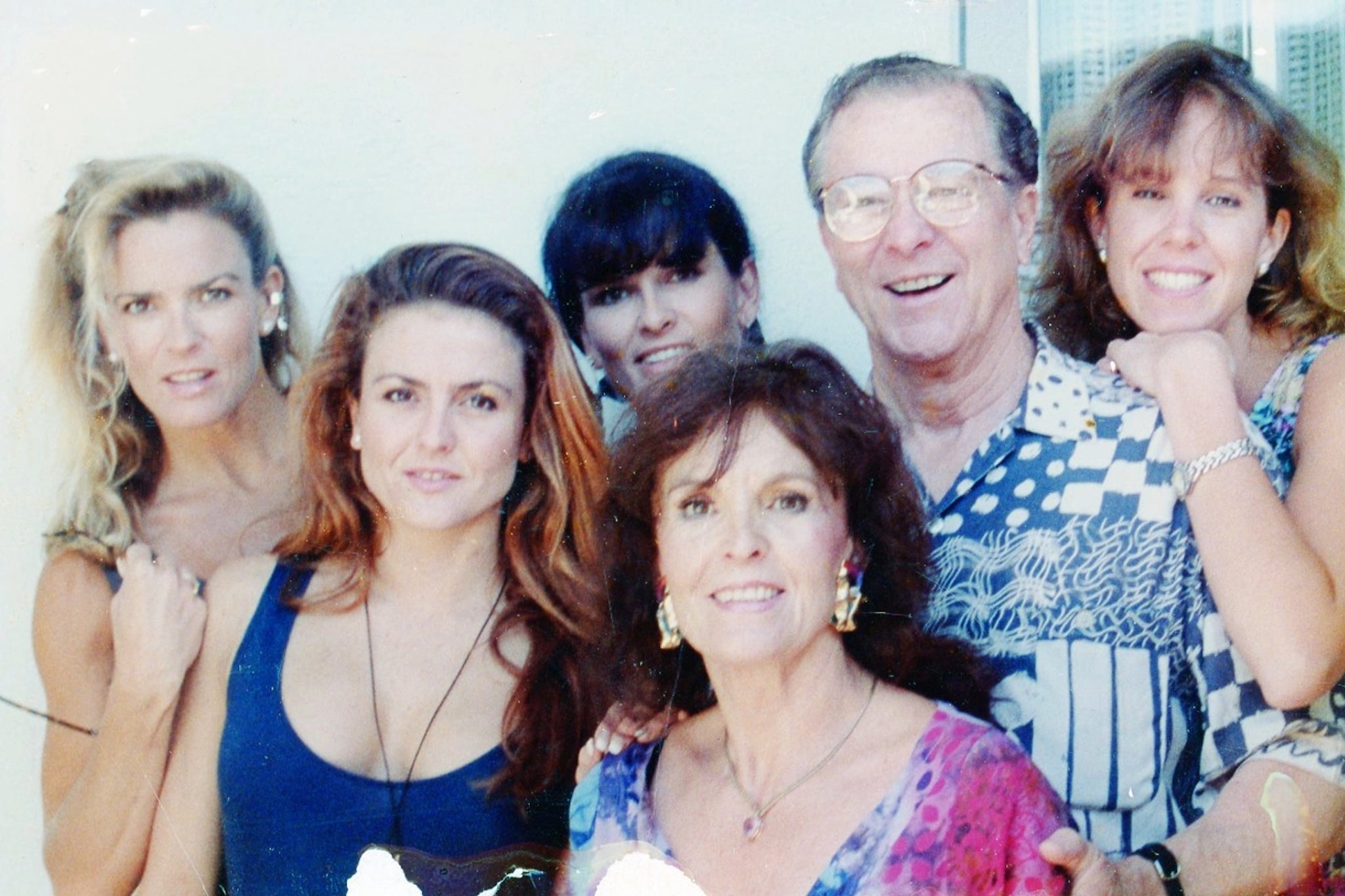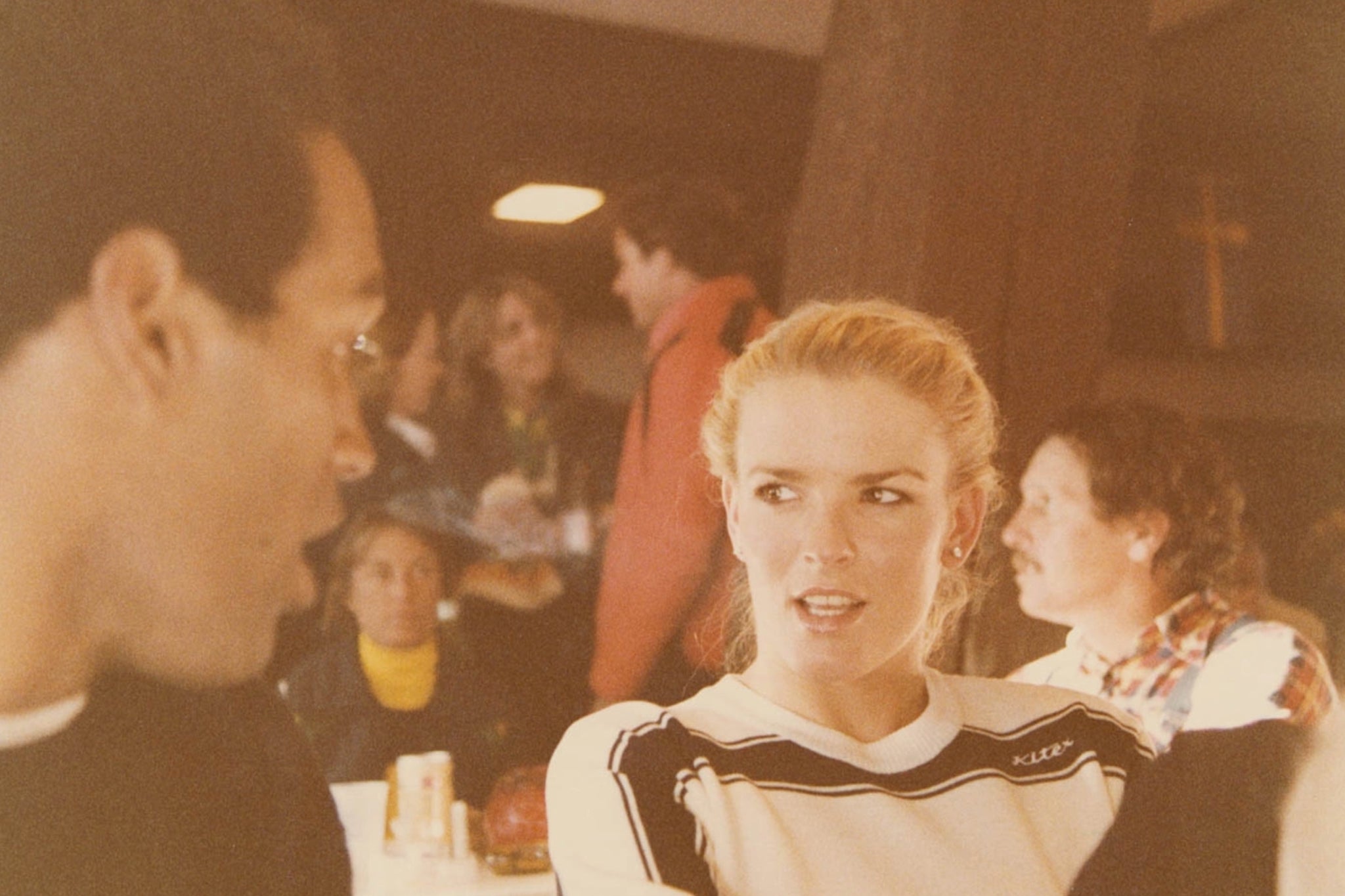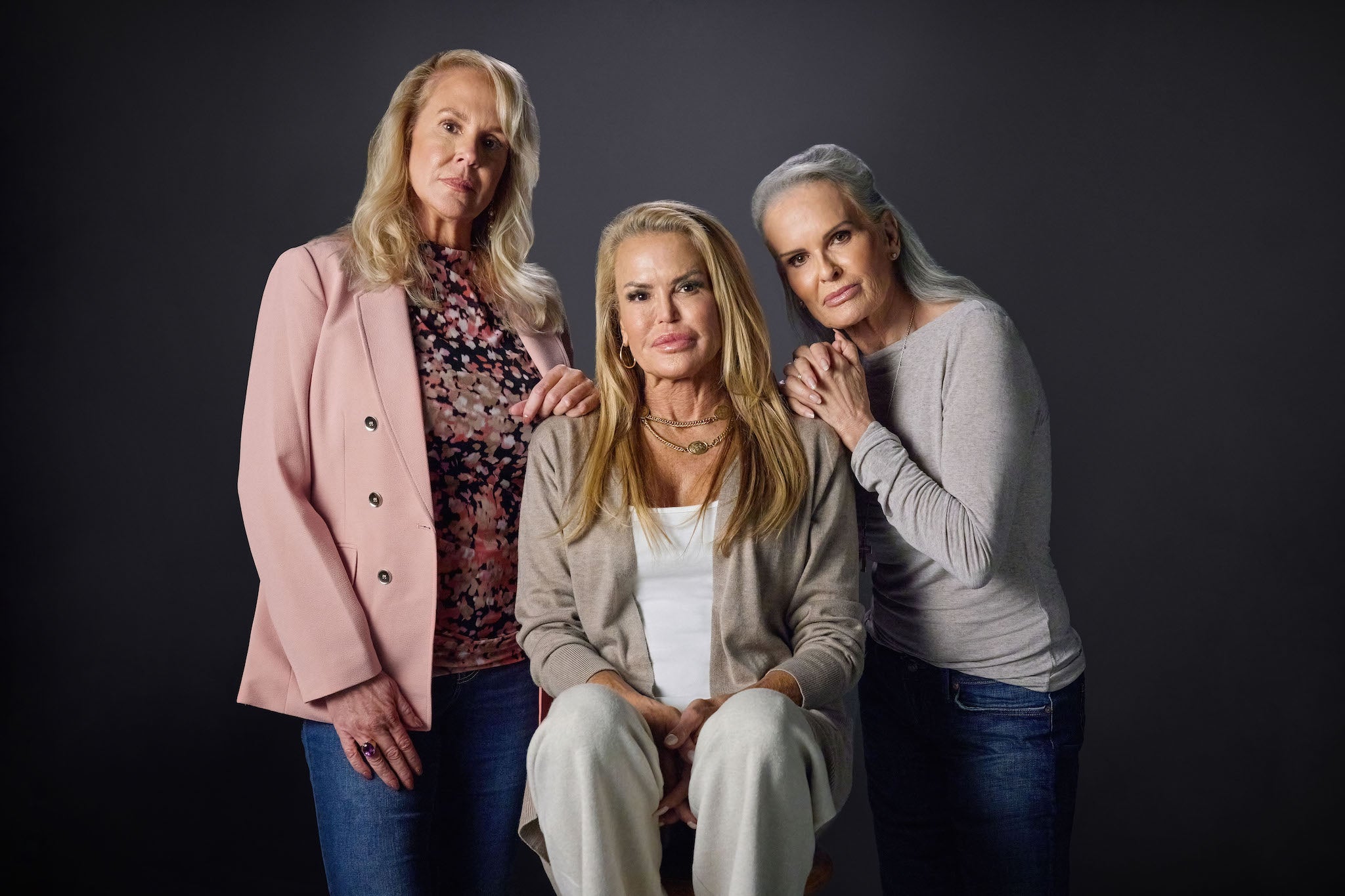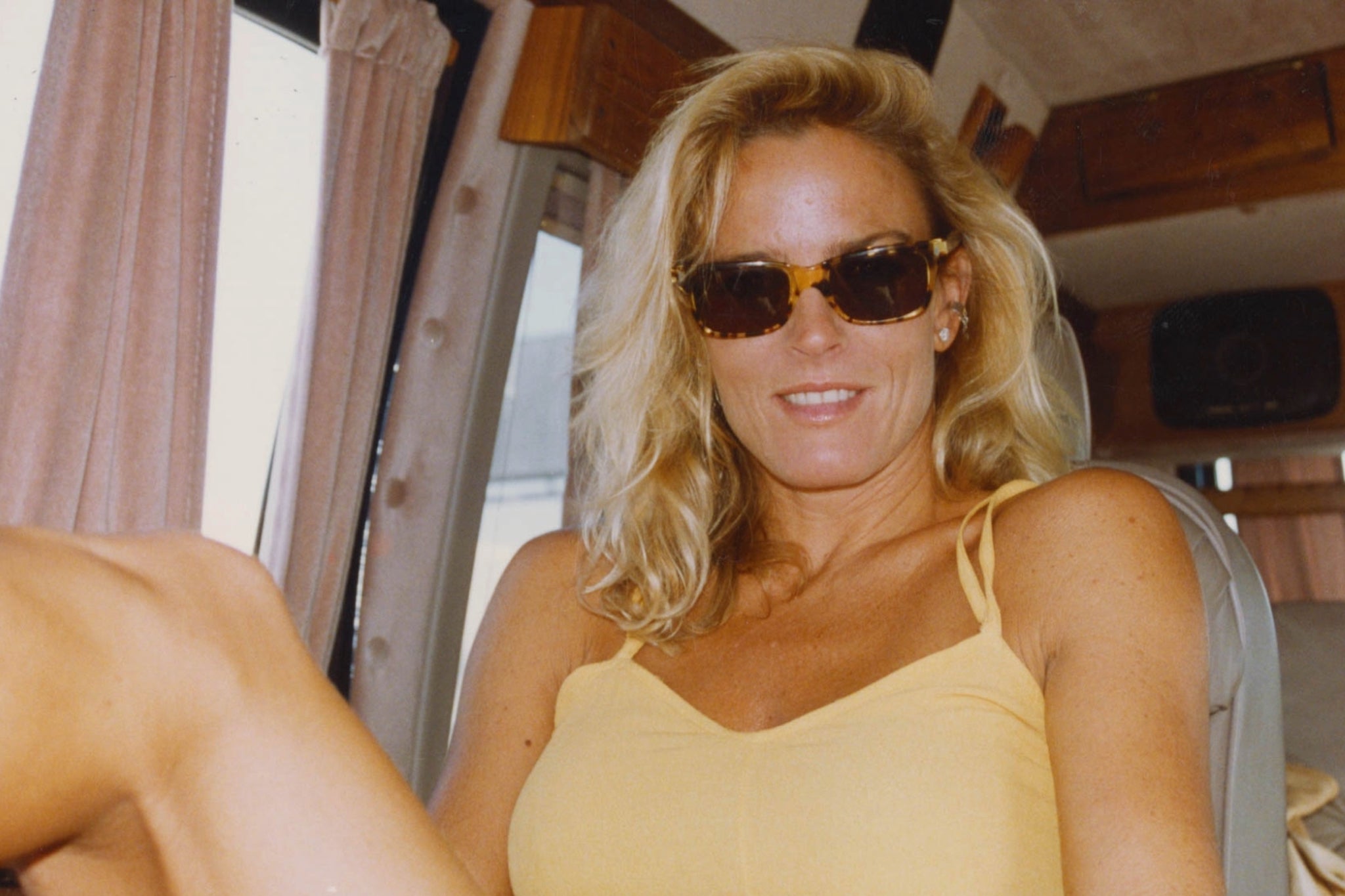
When Denise Brown got the call telling her that her sister, Nicole, had been found stabbed to death outside her home in Los Angeles, she knew who killed her. In her mind, it was clear as day. “He’s done it, he’s finally done it,” Brown recalls thinking that morning back in June of 1994. “He” being Nicole’s ex-husband, the adored NFL star and former running back of the San Francisco 49ers, Orenthal James Simpson. “The detective asked me who did it,” says Brown. “I told them, OJ.”
The trial of the century ensued; over eight months in 1995 the world watched, transfixed, as OJ Simpson was tried – and acquitted – for the double murder of Nicole Brown Simpson and her friend Ron Goldman. Even Bill Clinton, then US president, paused what he was doing to watch the live verdict be delivered on 3 October. In civil court two years later, OJ was found liable for their deaths and ordered to pay a sum of $33m in damages to their families, the lion’s share of which remains unpaid – but, decades later, it’s the criminal trial that has stuck in people’s minds.
Along the way, though, the victims faded from view – their memory caught in the media storm. A new docuseries about Nicole, made by her sisters to commemorate the 30th anniversary of her murder, seeks to redress that. “People forgot her, you know?” Denise Brown tells me over Zoom. “Nobody knew who Nicole was. Nobody remembered her voice. She got lost – her and Ron.”
The Life and Murder of Nicole Brown Simpson tries to focus most on the first part of that title. In fuzzy home videos, Nicole grins and laughs; she’s on the beach cradling her babies, and on the dancefloor with her siblings. These vignettes offer another side to a woman who for so long has been framed only through images of violence: the polaroids she had taken of herself after being beaten, or the graphic crime scene photographs of her lifeless body strewn across front pages around the world.
“We want people to get to know the incredible woman she was, the incredible mother that she was, the wonderful interior designer, and the fun-loving sister,” says Brown. “We want them to get to know her like that.” Naturally, though, there is a great deal of darkness to Nicole’s story. The four-part docuseries paints a portrait of a woman stuck in a cycle of terror that began when she first met OJ. She was an 18-year-old waitress at The Daisy, a Beverly Hills members club with a menu named after its celebrity clientele – the Jack Nicholson steak tartare; the Katy Hepburn meat pattie and fresh fruit; the OJ Simpson scrambled eggs and sliced oranges.
Perhaps the most arresting parts of the series concern Nicole’s diaries, which her sister Dominique found after her death, tucked away beneath the kitchen sink. “She had been hiding them with all the kids’ artwork,” says Brown now. The entries are brief but revealing. “He threw fit [sic], chased me, grabbed me, threw me into walls,” reads one entry. “Beach house – hit me, threw me up against the wall,” reads another. “OJ threw me up against walls in our hotel and on the floor… The windows scared me – thought he’d throw me out.”
Brown had witnessed first hand the occasional outburst from OJ (“I don’t want people to think that I never tried to get her out of this abusive relationship, because I did”) – but these diaries lay bare the extent of it, and shine a harsh new light on fond memories. “One time, we were putting our makeup on together getting ready to go out, and I found this Polaroid of Nicole with a black eye in her drawer. She laughed and told me a makeup artist had done it for fun, and so I just put it back,” says Brown now, audibly upset.
When she read the diaries for the first time, her first question was: “Why? Oh my god, why didn’t she say anything? Why did she stay? Why didn’t she leave this asshole?” Brown and her mother took the journals to a women’s shelter in Laguna Beach, where survivors and experts helped them understand Nicole’s frame of mind at the time. “As I became educated about domestic violence, I realised that I had been asking all the wrong questions, saying all the wrong things. There’s a lot of shame around domestic violence,” she says. “It’s a cycle. Every time there was an incident I was privy to, she’d say she couldn’t leave: ‘He’s the father of my kids. I love him.’”

Brown wasn’t the only one educating herself. Nicole’s murder and OJ’s acquittal became a landmark moment for domestic violence awareness – and a lesson in realising that public personas don’t always line up with behaviours behind closed doors. All of the US heard how Nicole was failed repeatedly by the police in the years leading up to her death: while she kept the worst of it hidden from her family, she was by no means silent about what she endured.

Watch Apple TV+ free for 7 days
New subscribers only. £8.99/mo. after free trial. Plan auto-renews until cancelled

Watch Apple TV+ free for 7 days
New subscribers only. £8.99/mo. after free trial. Plan auto-renews until cancelled
Police had been called to the Simpson house no fewer than nine times prior to Nicole’s murder. Each time, they took no substantive actions. In 1989, officers found Nicole badly beaten, and arrested OJ; he was convicted of spousal abuse but let off with a fine and probation. They divorced two years before her death, but the abuse endured. OJ stalked her – appearing at her home, at the grocery store, in her rearview mirror. “He was still abusive, he was always there,” says Brown. “The word ‘stalking’ didn’t even come up because that wasn’t a word used at the time. We’d just say he was being an asshole.”
Five days before she was murdered, Nicole called a women’s shelter asking what it would take for her to disappear someplace where OJ couldn’t find her. Months earlier, in a call that’s still distressing to hear now, she had rung 911 as he broke down her back door. She kept evidence of his abuse in a safe deposit box, including polaroids of her injuries, some of which Brown helped to take, and letters in which he apologised for beating her.

When OJ was acquitted, Brown recalls how women’s shelters across the US emptied out. “I talked to a shelter that had 60 beds – everybody but four left,” she says. “They said, if he can get away with it, so could my abuser.” It was a huge setback, but it also gave rise to a powerful backlash that helped change public perception around domestic violence. Shortly after her death, the Violence Against Women Act gained final approval in Congress and became law; the next year, Brown helped save it from budget cuts.
“One thing that I would like to say, though, is that it didn’t have to take my sister’s life,” she says. “The Violence Against Women Act was already in process for years before it passed after Nicole’s murder. The sad thing for me is that it took her life to bring this to the forefront.” Brown can’t help but ponder what might’ve happened had it been passed earlier. “God, maybe Nicole would still be alive. It’s a big maybe, but you never know – it could’ve helped so many people if it had started earlier.”
Hallelujah, finally he’s gone— Denise Brown on learning that OJ Simpson had died
On a personal note, she remembers the exact moment the court clerk announced: “Not guilty.” It came as a shock; she had been certain it would be a hung jury. Nearby, Ron Goldman’s sister burst into sobs. Instead of going to the press conference afterwards, Brown and her family drove home to be with Nicole’s children. “We had tried to keep life normal for them,” she says. “We turned all our TVs on VCR so they wouldn’t see the news. We had our neighbourhood stores turn all the tabloid magazines around, in case their mother or father was on the cover.” They refrained, and still do, from speaking about OJ to the children.
Nicole and OJ’s children, Sydney and Justin, now adults, are notably absent from the docuseries. Brown thinks OJ’s recent death in April might have influenced their decision; he died aged 75 from prostate cancer while living in Las Vegas. Brown’s reaction upon hearing the news? “Hallelujah, finally he’s gone,” she exclaims, exhaling a puff of relief. “But then I sat there and thought, those poor kids. They have nobody now.”
Sydney and Justin are, though, in contact with their mother’s side of the family. “Dominique is very close with them both,” says Brown. “Meanwhile, I’m mending my relationship with them. I was the one who spoke about dad. I was the one who spoke out about him being an abuser and that he murdered their mother – I was very vocal with things like that so that was a tough thing.”

OJ was awarded custody of the children in 1996 before the civil judgement could find him responsible for Nicole’s murder. “The judge didn’t wait, so of course he got the kids back,” says Brown. He insisted on picking them up on Christmas Day. “Why couldn’t he just wait one extra day? It was cruel, just so mean,” says Brown, who tears up for the first time in our conversation. “Nobody was crying. Nobody was anything. We waved as they turned the corner, and then we just fell apart. It broke my heart to see my mum hurt like that.” Brown’s parents, the children’s grandparents, continued to fight unsuccessfully for custody until 2006 when they had both turned 18.
Brown likens the press around the trial to “vultures” but maintains that she was grateful for the cameras in the courtroom. “Simpson was so loved by the public and by the world. Everybody put him up on a pedestal,” she says. “I think people being able to see what they were seeing; they could make their own opinions about him.” She is less understanding of the other media coverage that turned her sister’s brutal murder into a joke.

Almost immediately after the trial concluded, “The OJ joke” was born and has since become a staple of comedy. Howard Stern, Jay Leno, and Norm Macdonald quipped about the case endlessly. Later, shows including Seinfeld and South Park would parody it. For a certain generation, their first ever encounter with OJ or Nicole was through a Family Guy episode titled “The Juice is Loose”. Brown didn’t watch any of it at the time. “How tasteless,” she says now. “But it is what it is – and people were making money.” Notably, she did not watch Ryan Murphy’s critically acclaimed 2016 series The People v OJ Simpson, a series her sister Tanya called “the epitome of disrespect”.
Acquittal or not, Brown is certain of what happened the night her sister was killed 30 years ago. “It was my gut feeling,” she says. “Ever since the very beginning, me and Simpson had this kind of [combative] relationship.” Somewhat surprisingly, Brown tells me she is “OK” with the fact that there are people out there who still believe he’s innocent. “I’m not here to change anybody’s mind about that. I just want people to get to know Nicole”.
‘The Life And Murder Of Nicole Brown Simpson’ continues on Crime+Investigation at 9pm and 10pm on Sunday 23 June. All episodes will be available to stream on Crime+Investigation Play







